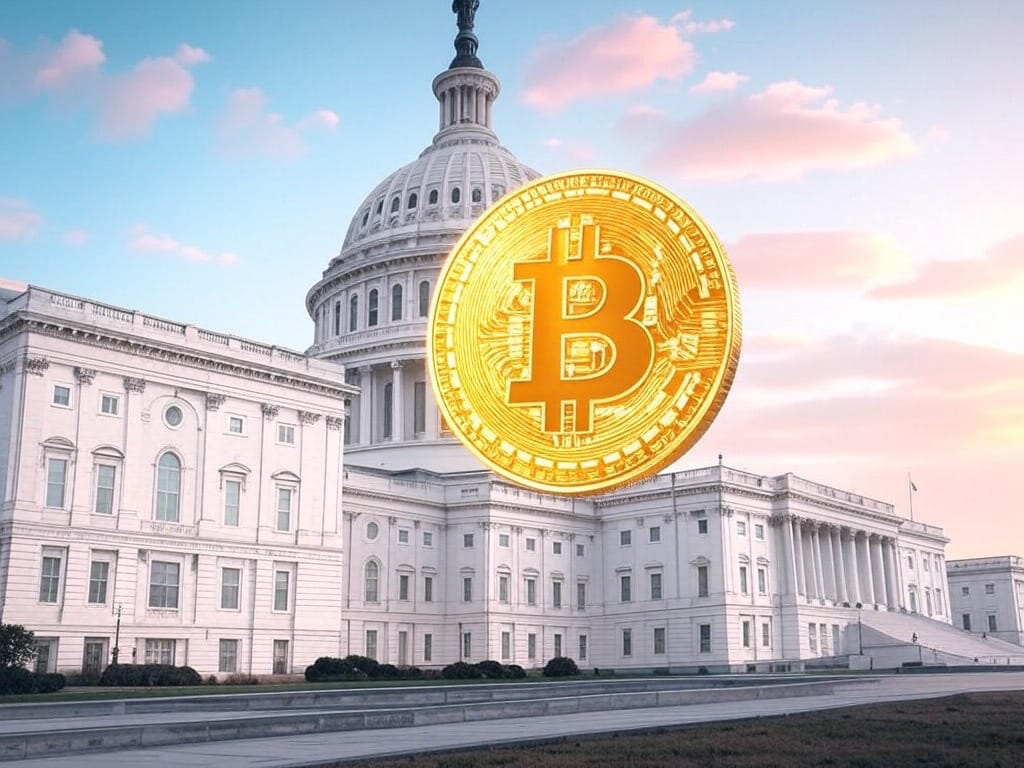U.S. Congress Expected to Prioritize Crypto Legislation in 2025

As we step into 2025, the landscape of cryptocurrency legislation in the United States is poised for significant transformation. With a new Congress and the pro-crypto stance of President-elect Donald Trump, the environment seems ripe for legislative advancements that could redefine the regulatory framework for digital assets.
The House Financial Services Committee, under the leadership of Rep. French Hill, R-Ark., is expected to be the epicenter of this legislative push. Hill, who has already been involved with key crypto bills, notably the stablecoin regulation and the Financial Innovation and Technology for the 21st Century Act (FIT21), is set to prioritize these pieces of legislation. The transition period for new lawmakers to settle in might take three to four months, but once they're up to speed, the pace is expected to accelerate, according to Ron Hammond, director of government relations at the Blockchain Association.
Stablecoin Legislation
The journey to regulate stablecoins has been long and fraught with challenges. Efforts to pass a stablecoin bill have been ongoing, with previous attempts led by Rep. Patrick McHenry, R-N.C., and Rep. Maxine Waters, D-Calif. Despite previous setbacks, the new Congress presents an opportunity to revisit this legislation. The previous bill, which was criticized for its approach to state versus federal regulatory oversight, might see amendments to make it more "state-friendly," aligning with the Republican-led Congress's preferences. On the Senate side, similar initiatives by Sen. Bill Hagerty, R-Tenn., suggest a bipartisan interest, though the path to law remains uncertain. The DeFi Education Fund's CEO, Miller Whitehouse-Levine, gives it a slim 25% chance of passing in 2025, with a more optimistic 75% in 2026.
The FIT21 legislation, aimed at enhancing the oversight of crypto spot markets by the Commodity Futures Trading Commission (CFTC), is another focal point. With new leadership at both the SEC and CFTC, there's a possibility that much could be achieved through regulatory adjustments rather than new laws. However, defining decentralization remains a complex issue within FIT21, potentially leading to revisions in how transactions are categorized for regulatory purposes. Despite these efforts, the introduction of a companion bill in the Senate has not yet materialized, and the legislative calendar is crowded with competing priorities like tax and border legislation.
The impending expiration of Trump's Tax Cuts and Jobs Act at year's end adds another layer of complexity to legislative planning. This scenario has been dubbed the "Tax Super Bowl" by Alison Mangiero of the Proof of Stake Alliance, highlighting the critical nature of tax-related discussions that could include crypto-specific provisions like the taxation of staking rewards.
Moreover, the idea of a strategic Bitcoin reserve has been floated, with Trump's campaign promises and Sen. Cynthia Lummis' draft legislation suggesting potential federal and state initiatives. However, without bipartisan support, these proposals might struggle to gain traction.
Finally, the influence of Sen. Elizabeth Warren, now in a key position as the ranking Democrat on the Senate Banking Committee, cannot be understated. Known for her skepticism towards cryptocurrencies, her role could serve as a significant hurdle or a catalyst for compromise, depending on how legislative negotiations unfold.
As 2025 unfolds, the crypto community watches closely, hopeful for regulatory clarity that could steer the industry towards mainstream adoption while ensuring consumer protection and market stability. The new Congress's actions in these initial months could set the tone for cryptocurrency's legislative journey in the United States for years to come.

